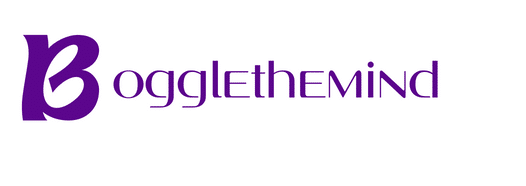What’s the Latest in AI-Driven Personal Fitness Coaching?

In this constantly evolving digital era, one sector that’s seen significant transformation is personal fitness. With advances in artificial intelligence (AI), AI-driven personal fitness coaching is revolutionizing the way people approach their health and wellness. Let’s go on a deep dive into the latest trends, the benefits they present, and how they’re shaping the future of personal fitness. The overarching theme remains the same: AI is the new personal trainer.
AI’s Role in Personal Fitness Coaching
Personal fitness has always been a sector ripe for innovation. With the advent of AI, the possibilities for growth and advancement are limitless. AI-powered fitness coaching brings about a new dimension in personal training, providing tailored fitness advice and strategies based on individual needs and goals.
A découvrir également : Tourist Cards of Rome: a gastronomy lover's guide
AI-driven fitness coaching involves the use of machine learning algorithms to analyze an individual’s fitness data and provide personalized workout recommendations. These technologies can monitor movements, track progress, and adjust workouts in real-time, providing a level of customization that traditional personal trainers struggle to match.
These sophisticated systems can also help predict potential injuries and suggest preventive measures, an added advantage that goes beyond mere workout assistance. They can identify patterns in a user’s performance and training habits, providing valuable insights that can help users optimize their workout routines.
A lire aussi : The best things to do in Peru according to izi peru
Key Trends in AI-Powered Fitness Coaching
There are several key trends to note within the domain of AI-driven personal fitness coaching. Let’s delve into some of the most significant ones that are shaping the industry:
1. Wearable Fitness Devices:
The advent of wearable fitness devices has brought AI-driven fitness coaching right to our wrists. These intelligent gadgets can track your heart rate, sleep, steps, calories burned, and even stress levels. Coupled with AI, these devices can provide real-time feedback, motivate you to reach your fitness goals, and suggest changes to your routine based on the data they collect.
2. Virtual Reality Workouts:
AI has breathed new life into virtual reality (VR) workouts. With VR headsets and AI, users can experience a more immersive workout routine, with the AI system adjusting the virtual environment based on the user’s performance.
3. Interactive Fitness Platforms:
Interactive fitness platforms are a new trend in AI fitness coaching. These platforms provide interactive workout sessions, led by AI trainers who are capable of personalizing each session based on the user’s fitness level.
The Advantages of AI-Driven Fitness Coaching
AI-driven fitness coaching offers numerous advantages over traditional personal training. It provides an unprecedented level of personalization, using data-driven insights to tailor workouts to an individual’s specific needs and goals.
Greater Access to Personal Training:
AI-driven fitness coaching makes personal training more accessible and affordable. Traditional personal training can be expensive and time-consuming, but with AI, everyone can have access to personalized fitness advice, anytime, anywhere.
Improved Performance Tracking:
AI systems can continuously monitor your performance and adjust your workouts in real-time, something a human trainer cannot do. This allows for more accurate performance tracking and more efficient workouts.
Predictive Analytics and Injury Prevention:
With the ability to analyze vast amounts of data, AI can help predict potential injuries and suggest preventive measures. This can greatly reduce the risk of injury and improve overall workout effectiveness.
The Future of AI in Personal Fitness Coaching
As with any technology, the future of AI in personal fitness coaching is not set in stone. However, current trends suggest that AI will continue to play an increasingly significant role in the fitness industry.
In the future, we may see AI systems that can fully replace human trainers, overseeing every aspect of an individual’s fitness journey. We also expect to see advancements in AI’s predictive capabilities, with systems able to anticipate injuries and health issues even before they occur.
The integration of AI and biotechnology is another promising frontier. With bio-sensing wearables, AI systems could monitor and analyze a wider range of biological data, providing even more personalized fitness advice.
The future of AI in personal fitness coaching is undeniably bright, with countless opportunities for innovation and advancement. One thing is certain: AI is here to stay, and it’s transforming the fitness industry in unimaginable ways.
As we look forward to the future of personal fitness, let’s embrace this digital transformation. It’s not about replacing the human touch, but about enhancing it, making fitness more personal, effective, and accessible to all. Remember, the goal isn’t to outdo the machine, but to let the machine help us become the best versions of ourselves.
The Impact of AI on Fitness Industry’s Growth
The impact of AI-driven fitness coaching on the growth of the fitness industry is monumental. Fitness as a sector has always been ready for innovation and AI has accelerated this readiness to unparalleled levels. AI has allowed the fitness industry to evolve in ways that were unimaginable just a few years ago.
The capability of AI to provide personalized workout recommendations, track progress, adjust workouts in real-time, predict potential injuries and suggest preventive measures, monitor and analyze a wide range of biological data has revolutionized the entire fitness industry. AI has opened up new business models and revenue streams in the industry, from the development of AI-powered fitness apps and wearable fitness devices to interactive fitness platforms and virtual reality workouts.
More importantly, AI has brought the personal trainer to everyone’s doorstep, making fitness more accessible and affordable. This increased accessibility has resulted in a significant growth in the number of people engaging in regular physical activity, leading to a healthier and fitter society. This, in turn, reduces healthcare costs and increases productivity, contributing to overall economic growth.
With the continuous advances in AI technology, the growth potential for the fitness industry is limitless. The integration of AI and biotechnology is an exciting area of growth, with the possibility of developing fitness devices that can monitor and analyze a wider range of biological data, leading to even more personalized fitness advice.
Conclusion
The future of personal fitness lies in the hands of AI. AI has already started transforming the fitness industry and there is no sign of it slowing down. The use of AI in fitness coaching has brought about a level of personalization, efficiency and accessibility that was previously unimaginable.
The potential for growth and advancement in the fitness industry with AI is infinite. As AI continues to evolve, we can expect to see more innovative fitness solutions, from AI-powered virtual reality workouts and interactive fitness platforms to bio-sensing wearable fitness devices and predictive analytics for injury prevention.
The integration of AI and biotechnology is a promising area of growth, with the potential to revolutionize the fitness industry even further. This will open up new business opportunities, create jobs, and contribute to economic growth.
In conclusion, the future of personal fitness coaching is bright, with AI leading the way. It’s not about replacing the human touch, but enhancing it. It’s about making fitness more personal, effective, and accessible to all. As we look forward to this future, let’s remember that the goal isn’t to outdo the machine, but to let the machine help us become the best versions of ourselves.
